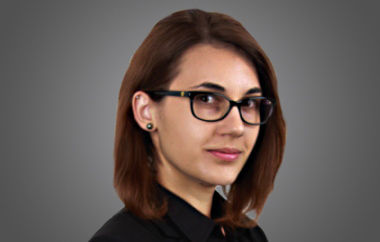PhD in Chemistry
Current position: Assistant Professor and Research Group Leader at the Soft Matter Physics of the Adolphe Merkle Institute, University of Fribourg, Switzerland
Research focus: photovoltaics
Jovana’s research is closely related to several UN Sustainable Development Goals (SDGs), first and foremost SDG 7 (Affordable and Clean Energy) and 11 (Sustainable Cities and Communities). She works on developing materials for a new generation of dye-sensitized and hybrid perovskite solar cells.
Since 2019, the performance of hybrid perovskite solar cells has surpassed the efficiencies of some market leaders, such as polycrystalline silicon, while offering a technology that is much more cost-effective, which is relevant to SDG 7. Moreover, both new types of solar cells have shown superior performances for building-integrated photovoltaics and indoor applications, which is relevant to SDG 11.
The development and implementation of these solar cells require a highly interdisciplinary approach. Jovana’s background in organic and supramolecular chemistry with strong interest in physical chemistry and material science uniquely positions her to design new hybrid organic-inorganic photovoltaic materials. She is part of an interdisciplinary team, collaborating with more than 20 renowned research groups across Europe.
The extraordinary performance of perovskite solar cells comes at the expense of the intrinsic instability of hybrid perovskite materials, which severely hinders practical applications. Some of the underlying reasons for this instability involve the sensitivity of active materials to environmental factors, such as oxygen and moisture, as well as the structural changes, when the device is under operating conditions of voltage bias and light.
Jovana’s research shows that these instabilities can be suppressed by relying on purposefully designed supramolecular systems and tailoring noncovalent interactions between these molecular agents and active materials. This can beneficially alter the properties of materials as well as the corresponding devices under operating conditions.
This approach has already proved promising for the stabilisation of perovskite solar cells under laboratory conditions. Moreover, Jovana and her collaborators have demonstrated that this approach can be upscaled, which is relevant to developing larger solar cell modules with enhanced stability in the future.
The jury lauded the value of this highly qualified scientist’s contribution to the further development of new types of solar cells, in particular perovskite solar cells, and to improving their stability.
Take a look at this video that briefly introduces Jovana and her research:






